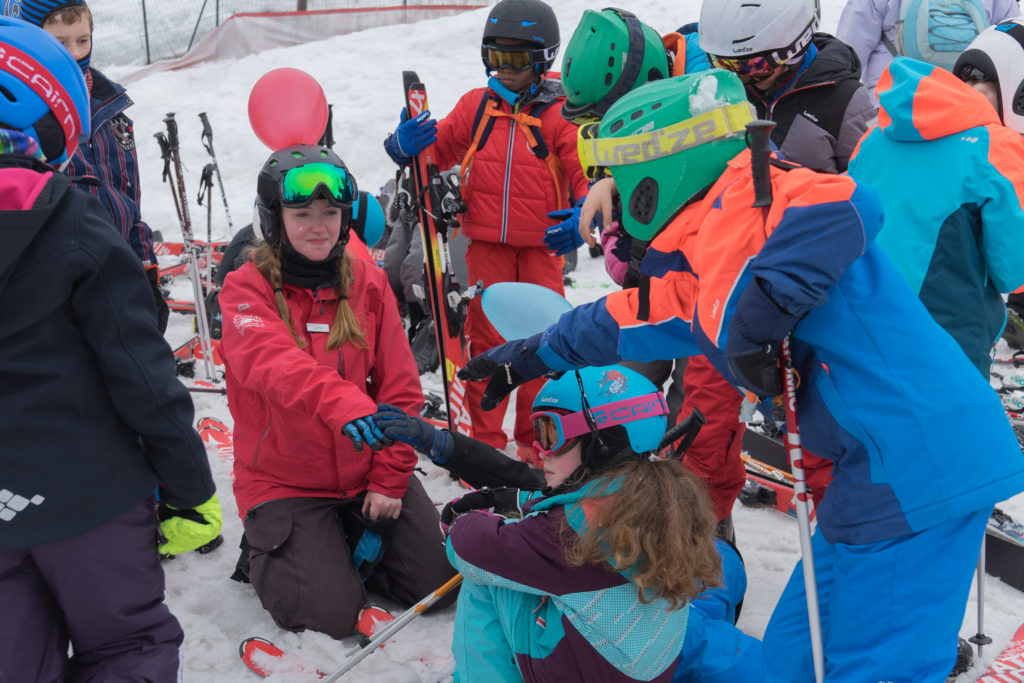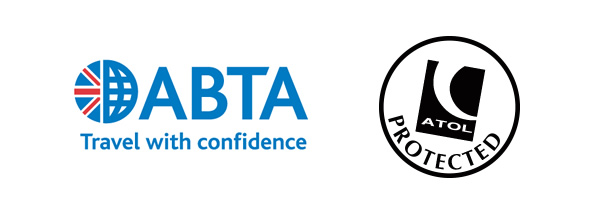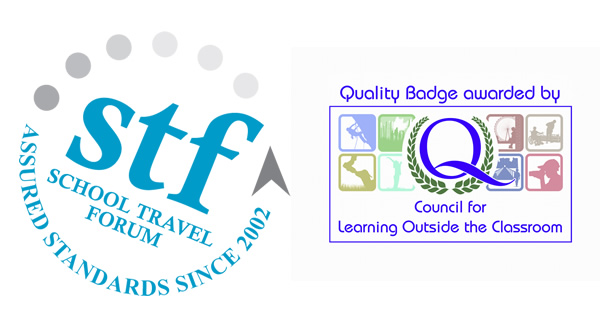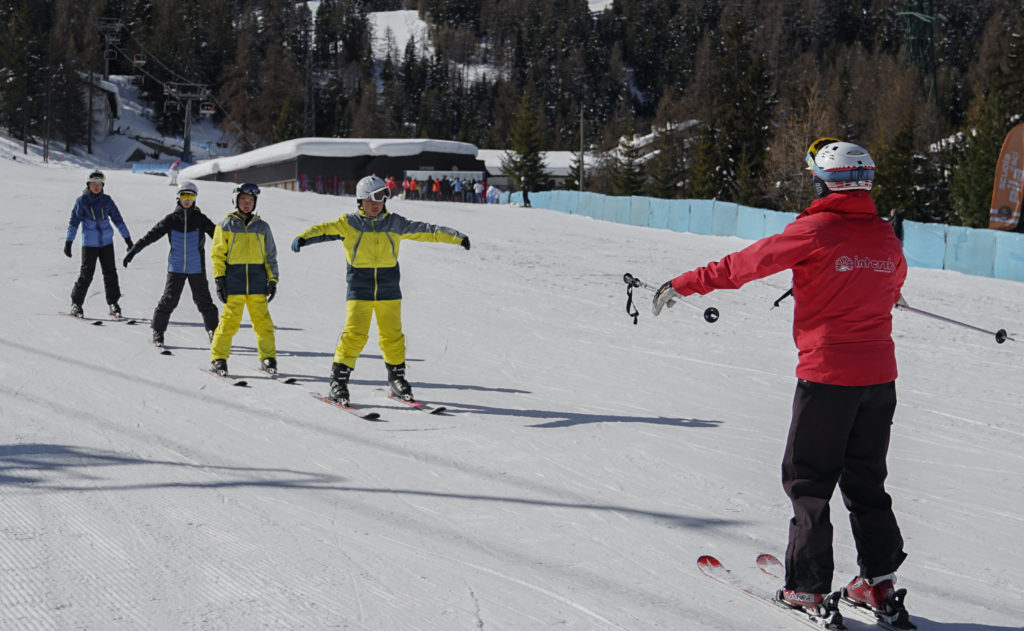8 Things To Consider When Choosing Your Ski Tour Operator
-
January 22, 2020

Choosing a provider for your school ski trip can be a daunting task with so many different companies to choose from. It’s also not like choosing a travel agent for your family holiday as you have the safety and wellbeing of lots of students to consider. We’ve put this blog together to help you identify the key points to consider when looking for the right ski tour operator which will hopefully help you to make the right decision for your group.
Do they offer financial security?
The first thing you should check is that the tour operator is ABTA bonded and/or hold an ATOL.
ABTA’s role is to ensure financial protection for customers if the tour operator goes out of business. Basically, it means that if the tour operator hits financial problems and is no longer able to trade, you will get your money back. They ensure that you will get a refund, including hotel costs and that if you are abroad your transport home is covered. ABTA covers trips bought that aren’t flight based, it covers rail, road and sea travel holidays. As the vast majority of school ski trips are by coach this is of paramount importance.
ATOL stands for Air Travel Organiser’s Licensing. It’s a government-run financial protection scheme operated by the Civil Aviation Authority (CAA). It covers ski trips that include flights. It’s worth noting that it’s a financial protection scheme, it doesn’t provide other assistance if there are other problems with your ski trip. If your travel arrangements are ATOL protected you will receive an ATOL certificate from your travel company when you make payment. You need to keep it safe. Please remember, if you booked flights directly with an airline, they are not protected under the ATOL scheme.
These should both be clearly listed on the website of the company and covered on certificates that are legally provided.
Are they fully assured members of the STF?
The STF (School Travel Forum) is a non-profit, professional trade association that ensures all its members follow robust and effective Health and Safety Management Systems. All its members are audited annually by independent experts. STF membership is the benchmark for good school tour providers. It’s also an awarding body for the prestigious Learning Outside the Classroom Quality Badge. Although membership is not a legal requirements, if you want peace of mind that the tour operator has effective Health and Safety management systems in place being a Fully Assured STF member is a great indicator. This can be checked by looking at the STF website.
How long have they been trading?
If it’s an established company you have more assurance that they know what they’re doing and will ensure that your ski trip will be a success. It’s also a lot easier to get previous customers feedback. A quick google search should enable you to have a look at online reviews.
It’s also worthwhile asking around. Recommendations are worth their weight in gold when it comes to choosing an operator that you can trust, so ask colleagues and peers if they have any suggestions based on experience with previous providers. If a local school or college run ski trips, ask who they travel with and find out if they have been impressed with the service they have received and the experience delivered.
It’s a lot easier to judge with a tour operator that has been trading for a number of years rather than a newer company.
Are there any hidden costs?
The company you’re looking at may have a fantastic headline price, but be sure to find out exactly what the price includes (or doesn’t!). Requesting quotes from at least 3 different companies will ensure you get a good idea of average price point and package inclusions. Remember that the cheapest trip does not always mean the best quality, so consider value for money as a whole, not just the lowest price.
When comparing the quotes, make sure they are like-for-like as there can often be a large disparity between what’s offered. Key things to look for are lunches, après-ski activities in the evenings, ski hire, lift pass, tuition, evening meals etc.
Are they competitively priced?
If one company seems to have a much cheaper price than all of the others with similar inclusions, there is no harm in asking the reason why they’re able to offer such a low price. It could be something as simple as a hotel offering them a special rate, but rock bottom prices could also mean that they’re desperate for business due to financial problems. It’s worth querying it for your own peace of mind.
Is there a minimum group size?
One thing which often catches group leaders out is when the ski company stipulates a minimum group size. You may have high hopes for getting 40 students signed up when you first request the quote, but in reality, you may find that you only get deposits from 25. When you let the operator know that you have fewer students than anticipated, suddenly there’s a hefty supplement. Be sure to ask the operator if they have a minimum group size policy before putting the price out to students. The last thing you want to do is have to go back to parents/guardians to say the trip is going to cost more money… or cancelled altogether!
Will they allow you to take out a no-obligation provisional booking?
It’s a lot less stressful when trying to get your ski trip off the ground, if the tour operator allows you to take out a no-obligation provisional booking whilst you promote the trip to students. This means that you can reserve the places and hotel that you want, but are under no financial obligation should you have little to no interest from your students. Without this option, it’s a big gamble to take.
Are they a specialist ski tour operator?
Not only is skiing a specialist sport it’s also a high-risk activity. Some tour operators may offer a variety of different trips including skiing but are they geared up to be able to support you and your group whilst you are actually on the trip? Are they equipped to handle any accidents that may occur in resort? Do they have the specialist knowledge of the local area? If the company you choose is a specialist ski company they should be prepared for every eventuality that may occur from leaving the school, arriving in resort, ski hire and fit, lessons, après-ski and the return journey home.
Finally…
We think the best approach is to draw up a shortlist of 2 or 3 possibilities. Speak to them all and get a feeling for them as a company – in most cases, trusting your instinct can often be a good gaugeof the best direction to take. Quickly pen a list of pros and cons for each of them and see who comes out on top and whether this pragmatism matches your sentiments.
We hope these handy hints help you choose an operator for your trip – it may seem daunting at first but the right company will help you every step of the way.





Sarah McIntosh